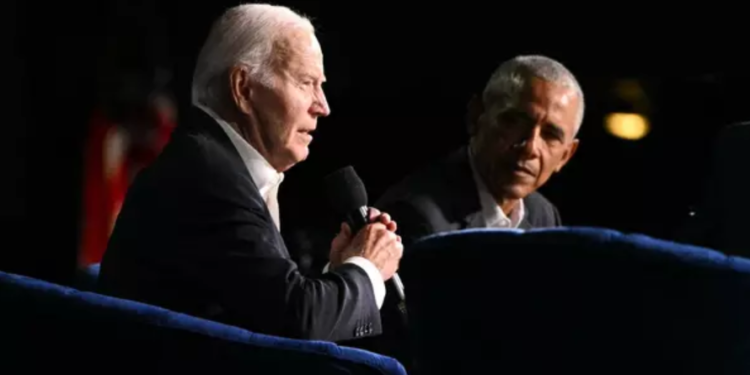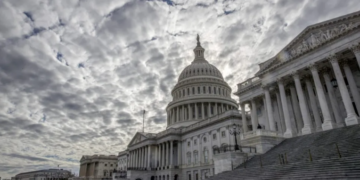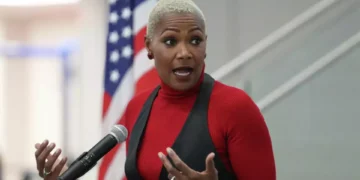Dec 16, 2024 Story by: Editor
A panel of Black female experts has highlighted misogynoir—the intersection of racism and sexism—as the primary reason behind Vice President Kamala Harris’s loss in the 2024 general election. They also criticized post-election media coverage for failing to address how white supremacy influenced the election outcome.
During a discussion titled “Views from the 92%: Black Women Reflect on 2024 Election and Road Ahead,” academics analyzed the factors contributing to Harris’s defeat, especially given former President Donald Trump’s controversial past. The event was hosted by the African American Policy Forum, a think tank co-founded by Kimberlé Crenshaw, a law professor at UCLA and Columbia University.
“Racism is designed in such a way to make you question your humanity, but sexism is also. Sexism is really a power move,” said LaTosha Brown, co-founder of the Black Voters Matter Fund. “When you combine those two things together, I think that that best explains what [Harris] experienced.”
Throughout the campaign, Harris faced a barrage of racist and sexist attacks from Trump and other conservatives, who baselessly claimed she “slept her way” into political power, labeled her unintelligent, and questioned her identity as a Black woman.
Such rhetoric, panelists noted, reflects America’s long history of racism against Black women. However, Kimberlé Crenshaw expressed frustration over the platforms that allowed Trump to spread this disinformation, pointing specifically to his appearance at the 2024 National Association of Black Journalists (NABJ) convention.
Karen Attiah, the former co-chair of the NABJ convention, described Trump’s interview at the event as a “viscerally painful experience.” During the interview, Trump questioned Harris’s racial identity, asking, “Is she Indian or is she Black? I respect either one, but she obviously doesn’t because she was Indian all the way and then all of a sudden she became a Black woman.” He also accused ABC News correspondent Rachel Scott of being “rude” during the interview.
“The responses I got for stepping down from white allies or people who are white leaders were, ‘Well, he was racist and destroyed your conference, but we needed to see that,’” Attiah said. “At the expense of our dignity[?]”
Exit polling from the November 6 election revealed that 53% of white women voters supported Trump, raising questions about who genuinely supports Black women’s interests, said Melanie Campbell, president of the National Coalition on Black Civic Participation.
“After this election, we need to reassess and have deep conversations about what it means when people claim to be allies,” Campbell said, emphasizing the need for ongoing internal organizing among Black women. “There was a majority of white women who voted against democracy, against women’s interests, for a racist, for somebody who is proud to have taken away our right to choose.”
Crenshaw also criticized mainstream media for giving Trump a pass while amplifying scrutiny on Harris. “Donald Trump was the biggest beneficiary of identity-based preferential treatment in terms of his media coverage,” she said. “Unlike Kamala, who was rendered by the media like a static, cling repository, anything would stick to her over and over again.”
Barbara Arnwine, president of the Transformative Justice Coalition, stressed that Black women must be prepared for ongoing attacks. “It is critical for Black women to not just talk about our magic,” she said. “We gotta talk about how we fight, how we become a fighting formation.”
Looking ahead, panelists encouraged building stronger community networks, revitalizing freedom schools, combating misinformation through social media, and addressing attacks on diversity and inclusion. Fran Phillips-Calhoun, of the Delta Sigma Theta Atlanta Alumnae Chapter, urged action. “This really is not time for retreat or apathy. We really do have to turn inwards so we can build again.” Source: The Guardian

















